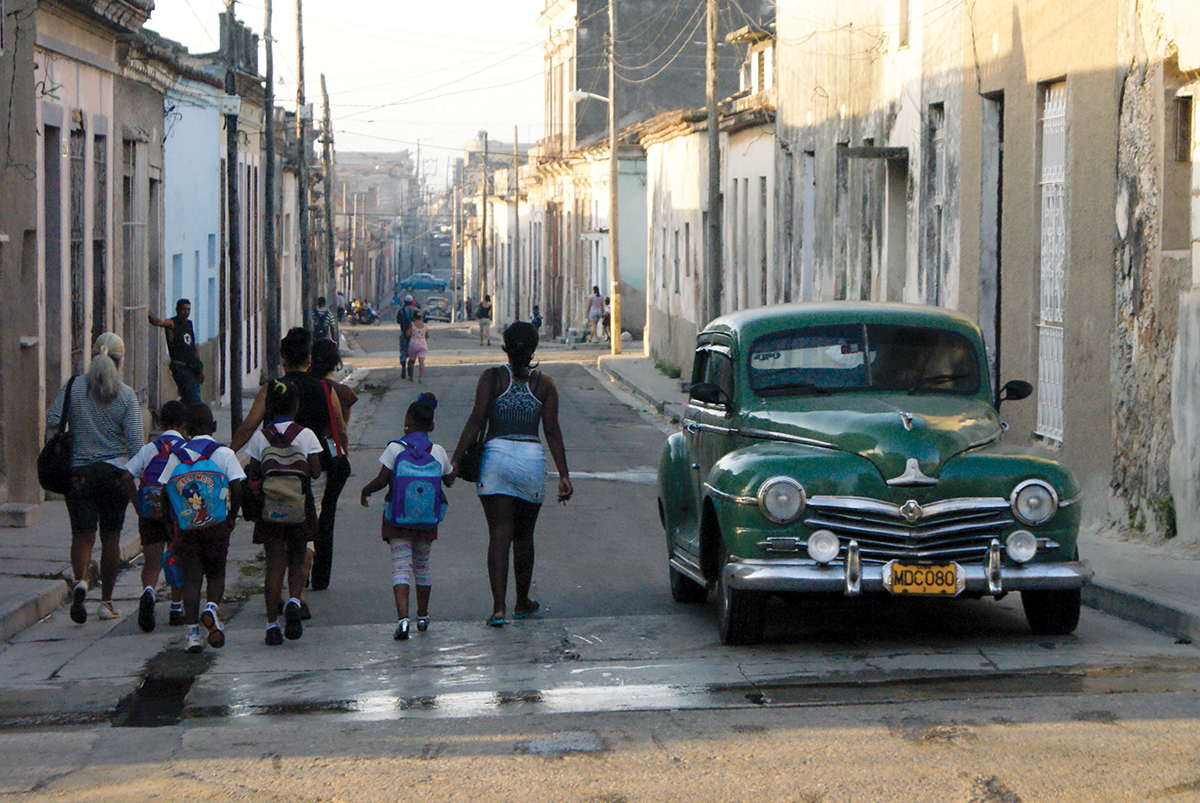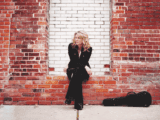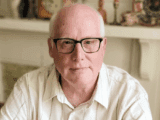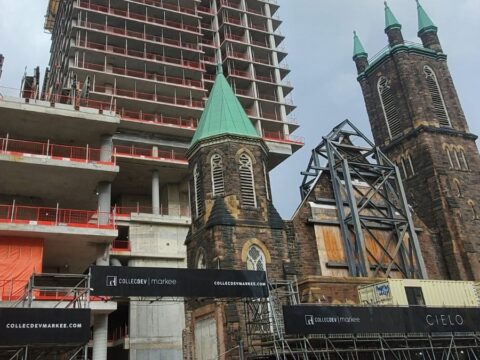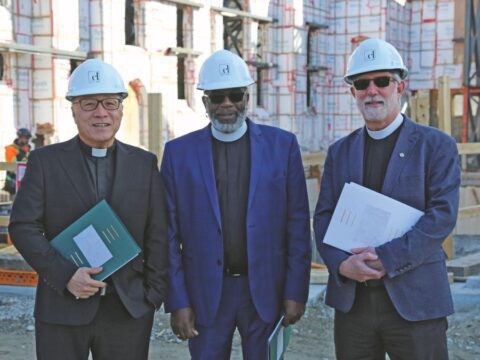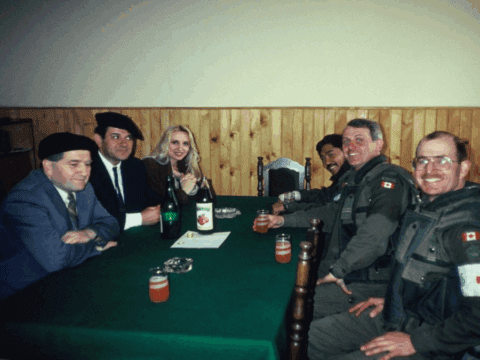Toilet seats: in addition to bright white, they come in blue, grey and olive green. There is a stack of them in my storage locker in Toronto, plastic-wrapped, donated by well-meaning companions who have travelled with me on my many trips to Cuba. “Just take them down on your next trip,” they whisper kindly. “God knows they can use them.”
Of course they can. Toilets without seats are part of the quirky Cuba we’ve come to know and love. I used to cram donated toilet seats into my luggage. I’d leave one at a Cuban friend’s house, smiles all round, and come back two months later to discover . . . no toilet seat.
You may unsubscribe from any of our newsletters at any time.
It took me several trips before I realized my mistake: I’d been giving Cubans what I thought they needed, rather than what they actually wanted. Toilet seats rank high on our list of priorities. Obviously, they don’t on theirs.
The turning point came 11 years ago. A church committee asked a visiting Cuban friend, Reinerio Arce, “What can we take down for you?” Reinerio’s answer was simple: “Let’s start with friendship and then trust.”
So we did. Fast-forward to March 2017. My suitcase is packed and ready to go to Cuba again — for the 49th time. Inside are white metal pans that assemble into a hairdresser’s movable workstation; a potato masher; two baroque violin bows; a pair of high-top hiking boots; and the pièce de résistance — a pasta maker. No toilet seats.
These are all things that people asked me to bring. And each, in its own way, evokes something of the Cuba that’s emerging after the death last November of former leader Fidel Castro, the Communist revolutionary who seized power in 1959. Whatever the future has in store, Cuba is a country that holds my heart. For all its complications and contradictions, Cuba never sends me back empty-handed.

A trolley for Liuva
The Peluquaía hair salon is located in Liuva Fuentes’ brightly painted apartment in the Reparto Iglesias neighbourhood of Matanzas, about 100 kilometres east of Havana. We exchange kisses as I arrive — Cubans always greet each other with a kiss on the right cheek. “We’re kissaholics,” Liuva says.
The portable hairdressing trolley I’ve brought takes only a few minutes to assemble, but it’s a godsend. Rather than having to continually walk around her clients to fetch her hairdressing tools, she can now keep them close by wherever she is. Liuva received the initial tools of her trade from Bridges of Grace, a Portuguese-speaking United Church congregation in Toronto. This trolley is a gift from Nancy Thornton, a Canadian friend. Liuva pays that generosity forward by cutting hair at her church for free on Wednesdays.
Liuva represents Cuba’s ideal future — hundreds of little businesses run by courageous, hopeful entrepreneurs. The current economic challenge is to ease the country into a market economy without the complete surrender to market forces that has happened elsewhere.
No one wants to return to the gross inequality of the 1940s and ’50s. But the lack of a wholesale market structure means that small business operators like Liuva pay full retail price for the products they need. Many have to go “on the left” (a euphemism for buying on the black market) to control costs.
Low-level corruption is a very serious downside of post-Fidel Cuba. It’s not that people are dishonest. In interpersonal matters, they are scrupulously honest. But years of a controlled economy, the privations caused by the nearly 60-year-old U.S. trade embargo and the inequality between what’s available to tourists and what’s available on the street have created a widespread acceptance of “unofficial redistribution.” Yes — technically, it’s stealing. But try surviving in the current context without doing a little of it. It can’t be done.

A potato masher for Wanda
Standing outside Wanda Hernandez’s apartment on Calle Medio in downtown Matanzas, I call to her to throw down her key, taking care not to step into traffic as I retrieve it. Once upstairs and supplied with the obligatory cafécito (“little coffee” — never served with milk, always with sugar), I bring out the masher, among other cooking utensils, provided by the Canadian friendship group CUBAbility. Wanda, whose smile lights up the world, is ecstatic. “This is incredible!” Coming from an artistic background (her dad, Manuel, is a renowned painter and ceramic artist), she has a penchant for having just the right tool for the task at hand.
Wanda is the director of the Kairos Centre, a mission of the First Baptist Church of Matanzas, located in the centre of town. Its staff assists the lost and lonely. The potato masher will be used to prepare a daily lunch for seniors who are particularly vulnerable.
People often ask me what’s new in Cuba. Senior care is new. Traditionally, grandparents lived with their children, caring for grandchildren and playing an essential role in the domestic economy. However, a Cold War-era policy that granted Cubans automatic entrance into the United States and a green card after a year enticed untold numbers of young Cubans to flee the island. In one of his last moves as U.S. president, Barack Obama removed this incentive. Cubans now have to arrive on a proper visa.
While the majority of grandparents still live with their children, the flight of young people means that a growing number of seniors have no safety net. Government pensions are very small (about $10 Canadian per month). The state never adequately addressed senior care. So an elderly person without family is stuck.
Juanita Manrrique is a case in point. She’s 96. Once a piano teacher, she still plays for the seniors’ group at the Kairos Centre. Her daughter lives in Miami and hasn’t visited in 20 years. Juanita lives off her pension, in a house she owns but cannot repair. With no family to help her, she is at risk.
Brian-Julio Pérez, a member of the church youth group, brought her to the Kairos Centre for lunch today, as part of a new program that matches seniors with teenagers. Bringing seniors to lunch helps older people to get out of the house, and it gives the centre’s staff an opportunity to check on their well-being.

Violin bows for Malú
It’s late afternoon when Wanda and I visit Malú Pomares to deliver the two baroque violin bows. Slight, serious and gracious, Malú has been selected to participate in a baroque ensemble touring Europe. Hence the bows. With their pointed ends, they’ll give her the control she says she needs to “bring out the depth of sound required by baroque composers.”
CUBAbility, the Canadian friendship group, works with the Kairos Centre and includes musical instruments among the items it sends to Cuba. Gathering instruments was Wanda’s idea. So far, the organization has sent two shipments of pianos, violins, trombones, flutes, drums, tools and parts. (Malú plays a violin from the first delivery.) A third shipment is planned for 2018. Once in Cuba, the instruments are given away, but recipients must commit to three conditions: to practise; to exchange an old instrument (if they have one) for a new one; and to return the instrument if it’s not being used anymore.
Previously, Malú had to leave her violin at the conservatory for someone else to play. Receiving an instrument of her own made all the difference. The baroque bows will take her to yet another level. Simple gifts like these have not only transformed Malú — they are helping to transform the country. “There is a pride here in our culture that I have not felt before,” says Wanda.
Hiking boots for Lázaro
An early sun lights our way as we mount the cement stairs into Lázaro Ceballos’s bright kitchen. We are met by Fiacha, a beige puppy and the newest member of the family. Fiacha is a sata, a mutt from the street, and symbolic of Lázaro’s approach to faith and life. He embraces the lost and scorned without judgment.
The hiking boots? Along with Orestes Roca, a Baptist pastor and biblical scholar, Lázaro and I are planning to hike the Camino de Santiago in Europe in September 2019. For me, it’s an adventure. For him, it’s a spiritual dream. The boots are a practical step toward making it come true.
Lázaro earns money by selling necklaces of small clay beads in tourist markets. Getting 50 cents per string, he needs to sell thousands to make a living. His real vocation is his work as a prison chaplain in Matanzas. For six years, he’s been training clergy and lay people to undertake a ministry of companionship in local jails.
As he talks quietly of this work, his joy and excitement are palpable. It’s a great day. He just heard that the state acknowledged the importance of chaplains. Proving the point, Lázaro relates how a prisoner had recently revealed that he was starving himself to death. No pressure or persuasion from prison authorities could change his mind. In desperation, the warden called in a chaplain, a local Baptist pastor. Through the pastor’s intervention, they convinced the man to live.
Twice a month, Lázaro sits in the prison library, meeting those who request a visit. He’s not there to evangelize. It’s a tough road: he walks with people weighed down by desperation, who live in crowded cells with few amenities. Lázaro has nothing to offer but his spiritual gifts of forgiveness and grace. The longer we talk, the more I am blessed by his faith.
A pasta maker for Patricia
Patricia Arés is a national celebrity, a family psychologist often interviewed in the Cuban media on issues of emotional health and healing. She was appointed by Fidel Castro to support the family of Elián González, the five-year-old boy who was plucked from the deadly waters of the Straits of Florida in 1999 and became the object of a tug of war between his surviving family back in Cuba and his vehemently anti-Castro relatives in Miami. Patricia was subsequently labelled an “enemy of the state” by American authorities and, for a time, was not allowed to visit her grandchildren in Florida.
She earns money teaching in other Latin American countries. But at home, Patricia offers individual consultations free of charge; it’s the Cuban way not to expect payment for sorting through family problems.
The pasta maker is a surprise present. Pasta has an honoured place in the Cuban revolution. Early on, when resources were scarce, the state created a street snack, served at government fast-food stands: pizzaghetti — half a bowl of spaghetti with tomato sauce and a folded six-inch cheese pizza. It became a staple of the Cuban diet, though no one bakes pizza at home or makes fresh pasta.
In Cuba today, food is a right. The country uses a ration system, not to restrict, but rather to ensure food security. Each citizen has a right to a serving of bread, rice and beans every day. Cubans go with their libretas (ration books) to the bodegas (government stores) to get staples at steeply subsidized rates.
Don’t compare Cuba with Canada. The best comparison is with other Caribbean countries, none of which offer this kind of food security. Early in the revolution, the government made it a policy that no one would go hungry. It’s worth noting that for all our affluence, we have no such policy here in Canada.
That’s not to say cooking is easy in Cuba. It’s often a magic show of taking what is available and producing a meal. The local street vendor has a cart of fresh pumpkins. So tonight’s dinner is shredded raw pumpkin. Add a splash of lemon, some olive oil, a pinch of garlic, and you have a spectacular salad. A guest brings a few huahuí (a small furry root vegetable), and so we’ll deep-fry them to go with the pumpkin. Add a bit of cheese left over from yesterday’s pizza party, and we have a feast.
No Bibles
There were no Bibles among the things I brought on this trip. Cuba has always been a destination for those who want to convert the “heathen.” The U.S. blockade and decades of propaganda depicting Cubans as an imprisoned people have only served to strengthen the impulse. Consequently, well-heeled American fundamentalist groups send missions to Cuba to “buy” local congregations. Too often, the “good news” they bring is laced with conservative, hierarchical and sexist pollutants that corrode family solidarity and undermine the Cubans’ natural, creative self-reliance.
The Cuban Methodist church is a case in point. In recent years, it has developed a strong charismatic flavour due in no small part to the influence of Americans and their money. This has led to significant disruption, as the church has broken with ecumenical partners and isolated itself from social structures and political dialogue.
For many conservative U.S. Christians, there can be no co-operation with a Communist state — it’s anti-Christian. But that’s not the core of the problem. The real issue is our tendency as foreigners to try to impose our own political and social assumptions on Cuba. It is very hard, even for liberals, not to think that we know best. (Remember the toilet seats.)
The more I live and work in Cuba, the more I recognize that Cubans have their own indigenous spirituality, a blend of fervent Christian piety and hot Caribbean spice. They don’t need ours. You can feel it when they sing hymns written by Cubans, not ones imported from the north. The room starts to sway, hands move, hugs abound and laughter reigns.
Contrary to popular assumption, the Communist government never banned or closed churches. Since 1992, church and government have co-operated closely. The country’s 58 Christian denominations are regulated by the Office of Religious Affairs of the Communist Party, with the Cuban Council of Churches acting as an intermediary for sharing resources and programs among its member denominations.
Of course, hardline Communists who were raised as atheists harbour leftover suspicions of religion. But now, it’s common to find party members worshipping on a Sunday morning.
Still, there are troubling inconsistencies. For instance, Wanda wanted to buy construction helmets for workers doing church repairs. They were available in the store, but she was told that they couldn’t be sold to religious organizations.
What’s next for Cuba?
“After Fidel?” used to be the big question for Cuba. Now, with Fidel’s brother and fellow revolutionary Raúl Castro set to retire as president next February, it’s “After Raúl?” Orestes Roca dreams of a future when a younger, more practical leadership gradually steers the country into an opening market economy that preserves current social values. That’s the official plan. Worst case: that Cuba remains a Communist state while practising Third World capitalism, where wealth is concentrated in a small elite. Cuban Americans are a huge factor. Once the U.S. blockade ends, some will come with capital and friendship, and will help to build a growing and prosperous country. Others will arrive with wealth and greed, determined to take back what they think they have lost.
Time to leave. My suitcase is never empty when I board the plane back to Canada. I bring home the goodwill and inspiration of friends who don’t give up or give in. Having so little and yet accomplishing so much, they’ve reset my faith compass. In my suitcase, I’ve packed the strength of their solidarity and the warmth of their hugs and greetings as compañeros — those who share bread on the road.
Still, no toilet seats. But it doesn’t matter.
This story originally appeared in the June 2017 issue of The Observer with the title “A suitcase for Cuba.”

